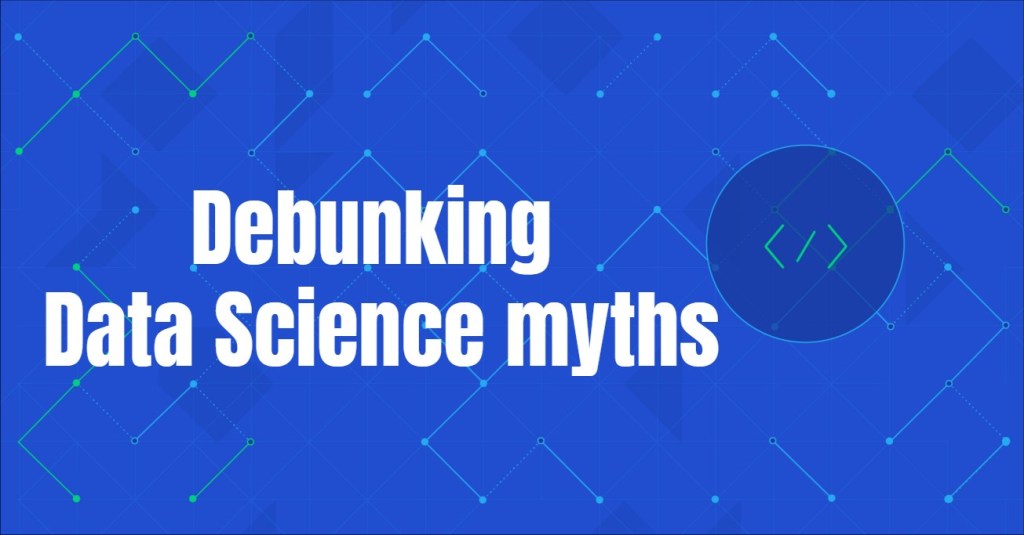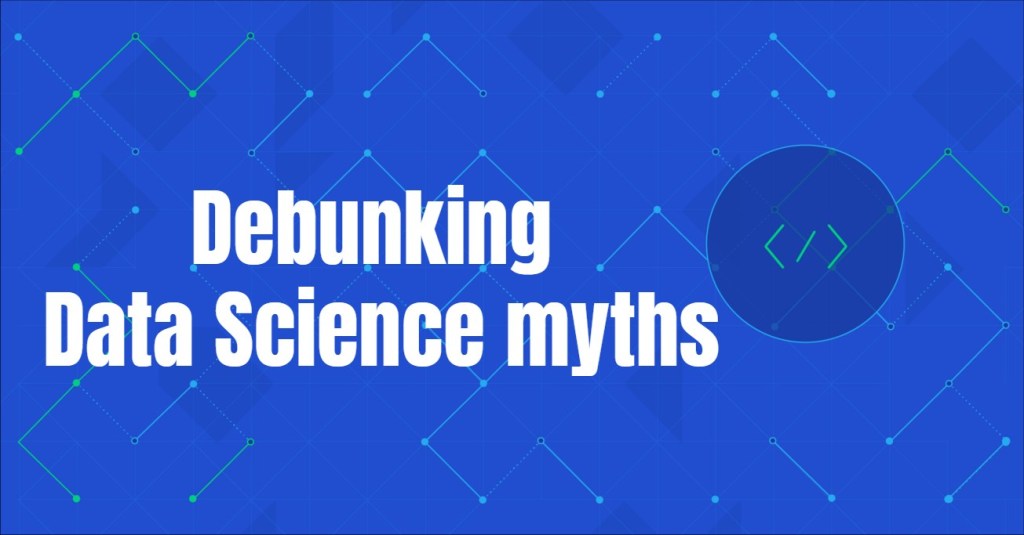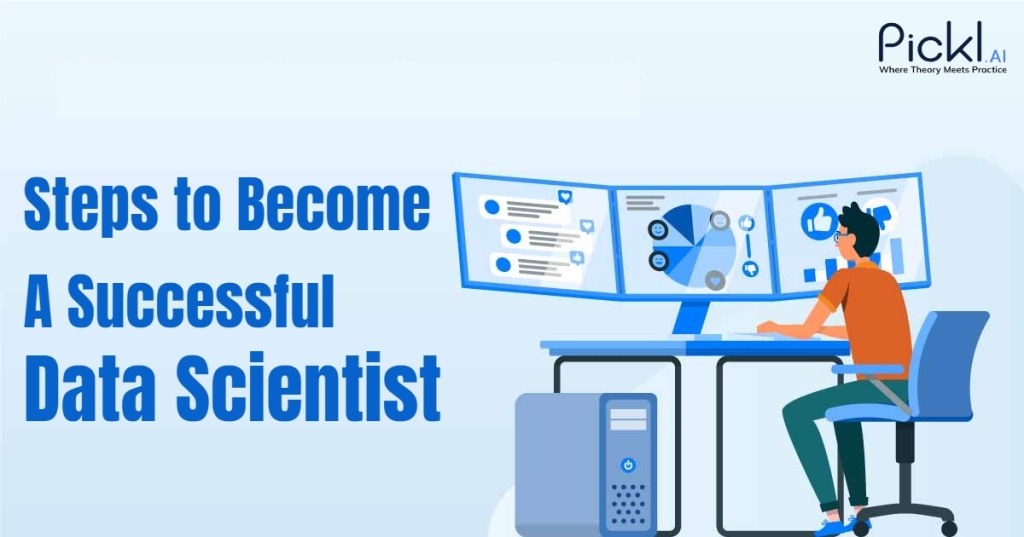
In times like today, where we are flooded with data, Data Science has emerged as a beacon of insight, helping businesses make informed decisions. However, with the growing popularity of this field, several myths have taken root, creating misconceptions about what Data Science truly entails. This blog is an attempt to clear the air surrounding Data Science.
Let’s debunk these myths and shed light on the reality of Data Science.
Myth #1: Data Science is only about programming
Contrary to popular belief, Data Science is not just about coding. While programming skills are valuable, data scientists also need a deep understanding of statistics, domain knowledge, and the ability to communicate their findings effectively.
Myth #2: Data Science requires advanced degrees
While advanced degrees can be beneficial, they are not a strict requirement for a successful career in Data Science. Many professionals in the field have gained expertise through practical experience, data science certification course online , and self-learning.
Myth #3: Data Scientists only work with Big Data
Data Science is not exclusive to big data. It encompasses the entire data spectrum, including small datasets. The key is extracting meaningful insights, regardless of the data size.
Myth #4: Data Science is only for large enterprises
Data Science is applicable to businesses of all sizes. Small and medium-sized enterprises can leverage Data Science to enhance decision-making, streamline processes, and gain a competitive edge.
Myth #5: Data Science is a solitary endeavor
Contrary to the image of a Data Scientist working in isolation, collaboration is a cornerstone of Data Science. Effective teamwork enhances problem-solving and brings diverse perspectives to the table.
Myth #6: Data Science results are always accurate
Data Science involves uncertainty, and results are not always 100% accurate. It’s crucial to understand the limitations and potential biases in the data to make informed decisions.
Myth #7: Data Science is only for predictive analytics
While predictive analytics is a powerful aspect of Data Science, it is not the sole focus. Descriptive and prescriptive analytics are equally important, providing valuable insights into past performance and guiding future actions.
Myth #8: You need expensive tools for Data Science
Many open-source tools, such as Python and R, are widely used in Data Science and are freely available. Expensive tools are not a prerequisite for entering the field.
Read also: 6 AI tools every Data Scientist must know
Myth #9: Data Science is only for IT professionals
Data Science is a multidisciplinary field, welcoming professionals from diverse backgrounds, including business, social sciences, and engineering. A combination of skills and perspectives enhances the richness of data analysis.
Myth #10: Data Science is a one-time process
Data Science is an iterative process. It involves continuous learning, refinement of models, and adapting to changing business needs. It’s not a one-time solution but a dynamic and evolving practice.
Debunking the myths: reality check
Now that we’ve debunked these myths, it’s crucial to understand the real essence of Data Science. It’s a holistic approach that combines technical skills, critical thinking, and effective communication to derive meaningful insights from data.
The Importance of Data Science in various industries
Data Science has transformed industries like healthcare, finance, marketing, and more. Its applications are diverse, ranging from predicting diseases to optimizing marketing strategies. There has been a significant rise of 650% in the analytics domain since 2012.
Frequently asked questions
Q- How to get started in Data Science?
A- For those looking to embark on a Data Science journey, there are various Job Guarantee Data Science Course online, bootcamps and resources available. Building a strong foundation in programming, statistics, and Machine Learning is key.
Q- What are the key challenges in the field of Data Science?
A- Despite its benefits, Data Science comes with challenges, including ethical considerations, data privacy concerns, and the need for continuous skill development. Addressing these challenges is crucial for the responsible and effective use of data.
Q- What are the future trends in Data Science?
A- As technology advances, so does Data Science. The future holds exciting developments such as augmented analytics, automated machine learning, and increased emphasis on ethical AI.
Conclusion
Data Science is a dynamic and evolving field that goes beyond the misconceptions that surround it. By breaking these myths, we pave the way for a clearer understanding of the role Data Science plays in shaping our data-driven world.


Leave a comment